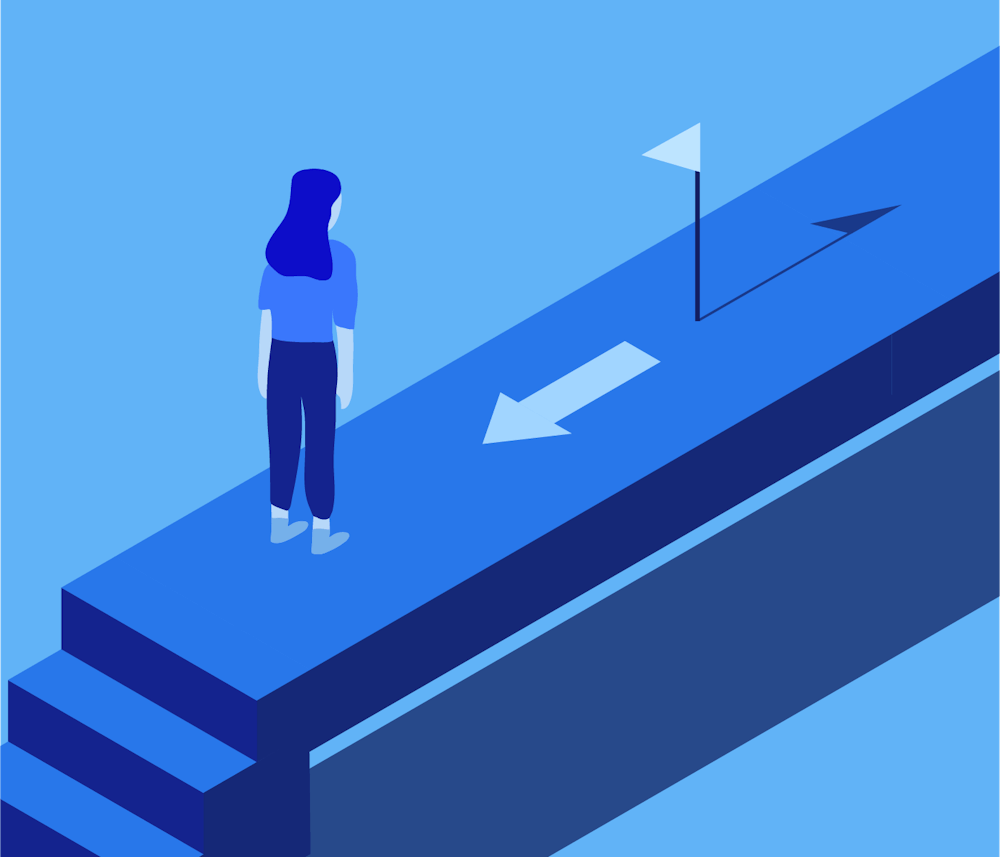People seem to be adopting different methods to cope with quarantine. Some are using it as an advantage to dive full–throttle into self–improvement journeys, while others, like me, are lavishing in their newfound time to sleep in, binge Netflix, or get dressed up for no reason at all. As weeks turn into months, it’s easy to begin to question how this will affect our lives in the long run.
How will this influence our opportunities for success? Of course, stressing out about summer internships and classwork seems so frivolous in the current state of things, but I think I speak for many Penn students who are worried about their online classes, mandatory quarantine, and the post–grad economy.
This article isn’t going to be an analysis of the post–virus job market or a step–by–step guide to finding a remote internship. Rather, I will discuss the information I gathered from Penn Psychology professor Angela Duckworth’s book, Grit: The Power of Passion and Perseverance. Through extensive research, Duckworth found that regardless of outside circumstances (e.g. a global pandemic) or inherent talent, our grit is the true answer to personal achievement and long–term success.
What is grit? And how does it relate to productivity? Duckworth created a scale that measures levels of perseverance and passion. If you are curious about your own “grittiness” levels, the quiz is available here.
Duckworth emphasizes putting in deliberate practice to advance skills continuously, regardless of rejection or failure. For example, while conducting her research, she found that national spelling bee contestants who consistently put in hours of practice to learn new words were more likely to win a competition than those who depended on their natural talent. After administering her quiz to new cadets at West Point, she found that those who scored higher in grit were much more likely to complete their training, regardless of SAT scores or fitness levels.
Time and time again, grit has proven to be the ultimate determinant of long–term success for individuals, ranging from cartoonists to aerospace engineers.
So how can we establish grit during a time where productivity is so out of reach? For many Penn students, this unexpected break seems to challenge the constant pressure to stay busy and make meaningful work. In fact, I had ironically planned to publish this article on grit last week, but I procrastinated and here we are. Right before writing this article, I coincidentally came across a New York Times article titled, “Stop Trying to be Productive.” I was comforted by the fact that many others shared my feelings of guilt for not maintaining or maximizing levels of productivity during self–isolation.
What struck me was that both the New York Times article and Grit note the importance of self–preservation. The article mentions that our generation is susceptible to burnout, as our hustle culture places so much value in constantly churning out work and making the most of our labor. With the extra time on our hands, our feeds seem to be inundated with at–home workouts, self–improvement content, recipes, books to read, and movies to watch; it’s easy to feel as though we are not doing enough.
While unfaltering productivity is admirable, it’s certainly not sustainable.
In Grit, Duckworth explains that rather than being productive without a means to an end, it’s far more effective to prioritize goals and put effort into achieving them. Inherently, grit is about finding your calling and not letting it go. Hence, it's important to get rid of many low–level goals that don’t serve your overarching ones. Personally, some goals I've decided aren't worth my best efforts are reading every single book on my reading list and finally mastering a one–minute plank during quarantine.
Now more than ever, it’s essential to value our perseverance and grittiness—it can carry us through obstacles. For me, perseverance means spending more time with my family, turning off the news, and focusing on making art. For you, it could look different—drinking more water, meditating, or going on a walk every day. Your goals and priorities may not be the same as those of your best friends or significant other, and you shouldn’t feel pressured to keep up.
Like Duckworth mentions, a sign of grit is the ability to continue onward in the face of inevitable challenges. I’m a naturally anxious person, and I've wasted a fair share of time stressing about canceled internships, changes in financial aid, and disconnecting from my academic advisor while declaring my major. Yet, all of these circumstances were completely out of my control.
As time goes on, I’m learning that acceptance of the current state of things is not a sign of passivity. Rather, it’s a catalyst for peace. And perhaps—in this stillness—we can learn how to best nurture the practices that give us joy.
We may not all come out of this with a post–quarantine glow up (if you do, kudos!), but with a deliberate mindset we can most definitely emerge as grittier, more resilient people.







